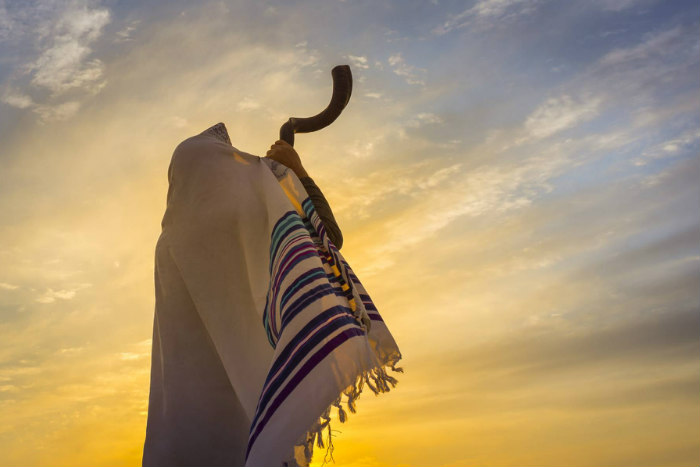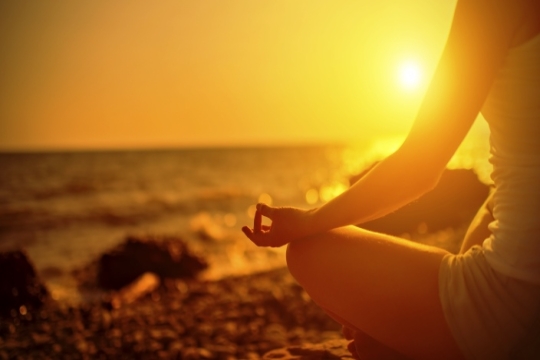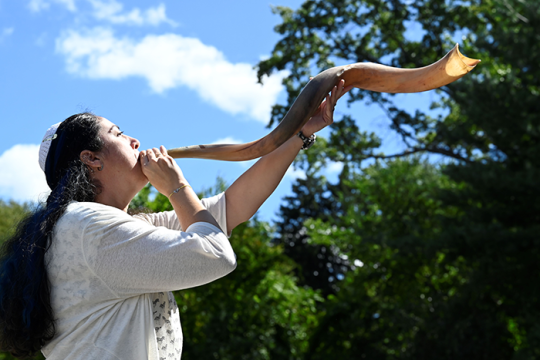
Editor’s Note: Trigger warning for anyone who has experienced trauma, particularly in the last year.
“On Rosh HaShanah this is written; on the Fast of Yom Kippur this is sealed; how many will pass from this world; how many will be born into it; who will live and who will die; who will reach the ripeness of age, who will be taken before their time… who by earthquake and who by plague; who will be tranquil and who will be troubled…
But through return to the right path [teshuva], through prayer [tefilah] and righteous giving [tzedakah], we can transcend the harshness of the decree.” (Mishkan HaNefesh, pg. 178-180)
One of the central prayers of the Ashkenazi liturgy for Days of Awe is Unetaneh Tokef, which asks us to imagine a drama that there is a Book of Life in a celestial dimension. We are judged on Rosh HaShanah before the Heavenly Court as to whether we will live or die, or have a life of ease or trouble, and we have 10 days until Yom Kippur to appeal our sentence. We argue our case through repentance, prayer, and charity, and before the heavenly gates close at the end of Yom Kippur, we pray to be sealed for another year of life.
In normal times, this prayer can be deeply problematic if read literally. In a time when (as of the time of this writing) nearly 900,000 people worldwide have died of COVID-19, with more than 24 million cases and growing across the globe, saying these words may trigger further trauma.
How can we approach these pages in our prayer books in a healthy way?
First, I invite anyone who wants to simply skip them. You have agency. As with any piece of provocative literature, you can simply say, “I don’t need more of this in my life right now,” and take a pass.
Remember, too, that this prayer doesn’t even appear in the Sephardi prayer book; it was written by people in a certain time of history (the Middle Ages), and it reflects their theology. You can always say, “This is not what I want to focus upon,” or even, “This not what I believe,” and move on. Another option is to share the music of this liturgy but not the words. If this prayer is too much for you, this could be the time to take a break.
A second approach is to understand these words as a metaphor, which they are. There is no literal book of life in heaven, where someone’s name gets written down or blotted out for life or death, tranquility or trouble. Instead, the prayer highlights that we are all mortal, and we never know when we will die. Therefore, there is urgency to doing the activities that give life meaning: , , and . They may not change whether someone lives or dies, but they do affect how you live and how it feels to be alive. We walk away from this prayer reminded of the responsibility to use our time wisely and well.
A third option is to redefine the meaning of the prayer or to even rewrite it for yourself.
The original prayer was based upon a passage in the Talmud (Rosh HaShanah 16b) taught by Rabbi Kaspodai in the name of his teacher Rabbi Yochanan. In this section, the angels or God write names of the completely righteous, the wholly wicked, and the rest of us, the “in-betweeners” into three different books.
In other parts of Jewish tradition, however, the Book of Life symbolizes other ideas. It is used to refer to the Torah (Exodus 33:32), and it also indicates a ledger recording how well we lived (Avot 3:16). In the latter meaning, we ourselves do the writing with our actions. Rabbi Bachya ibn Pakuda highlighted this last meaning by teaching, “Days are scrolls; write on them what you want to be remembered” (Duties of the Heart, the Eighth Gate on Examining the Soul, 3).
Whatever choice you make, treat yourself gently this season. Saying prayers about mortality during a pandemic when we have lost so much and many of us are in mourning is extremely difficult. Give yourself permission to do what is right for you.
I, for one, do not believe in a punishing God. I don’t even believe in a God who gets angry. I also don’t believe that God throws lightning bolts at sinners or literally seals their fate in September and October. I do believe that the metaphors of Avinu Malkeinu (God as Judge and Ruler, but also a loving Parent) and a Book of Life are very useful in invoking a higher moral authority while also calling us to apology, forgiveness, loving kindness, and trying to be better. The image of the closing of the gates at the end of Yom Kippur also adds urgency to doing this important, moral work. If we don’t have a deadline, some things never get done, and it is easier if we are all doing this together.
Personally, I chose to rewrite the prayer, seeking a more empathetic approach to mortality. Focusing on the interpretation of Bachya that we write our own Book of Life for God to read, I offer the following alternate version for you to use freely and share:
An Alternate Unetaneh Tokef
by Rabbi Joseph B. Meszler
On Rosh HaShanah it is written, on Yom Kippur it is sealed:
That this year people will live and die,
some more gently than others
and nothing lives forever.
But amidst overwhelming forces
of nature and humankind,
we still write our own Book of Life,
and our actions are the words in it,
and the stages of our lives are the chapters,
and nothing goes unrecorded, ever.
Every deed counts.
Everything you do matters.
And we never know what act or word
will leave an impression or tip the scale.
So if not now, then when?
For the things we can change, there is t’shuvah, realignment,
For the things we cannot change, there is t’filah, prayer,
For the help we can give, there is tzedakah, justice.
Together, let us write a beautiful Book of Life
for the Holy One to read.
Related Posts

Crossing the Bridge from the Particular to the Universal

How Meditation is Preparing Me for the High Holidays

